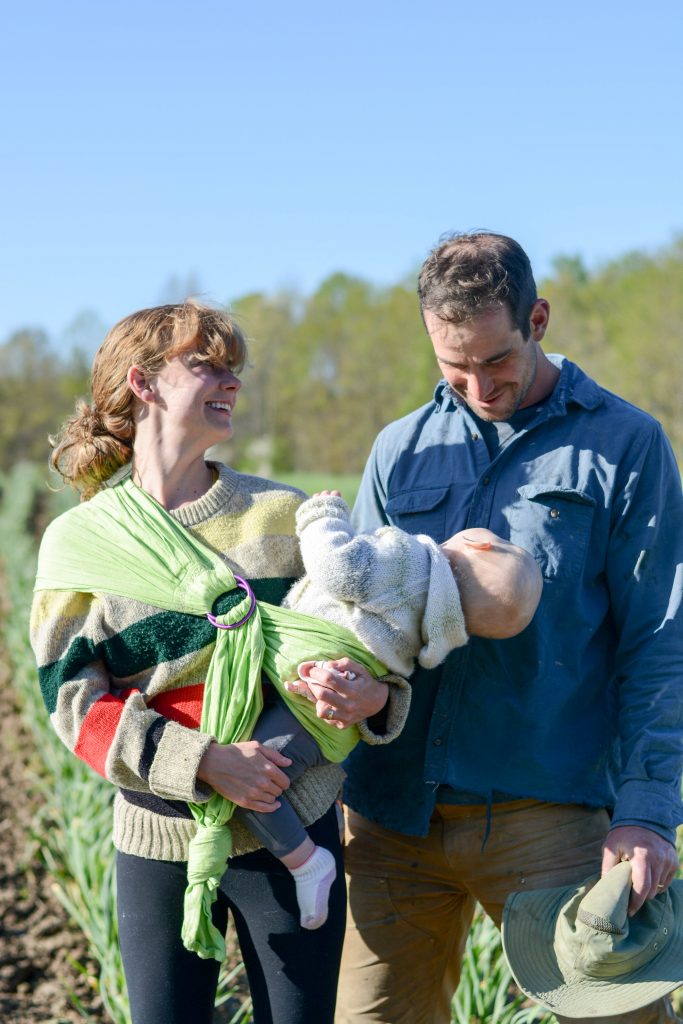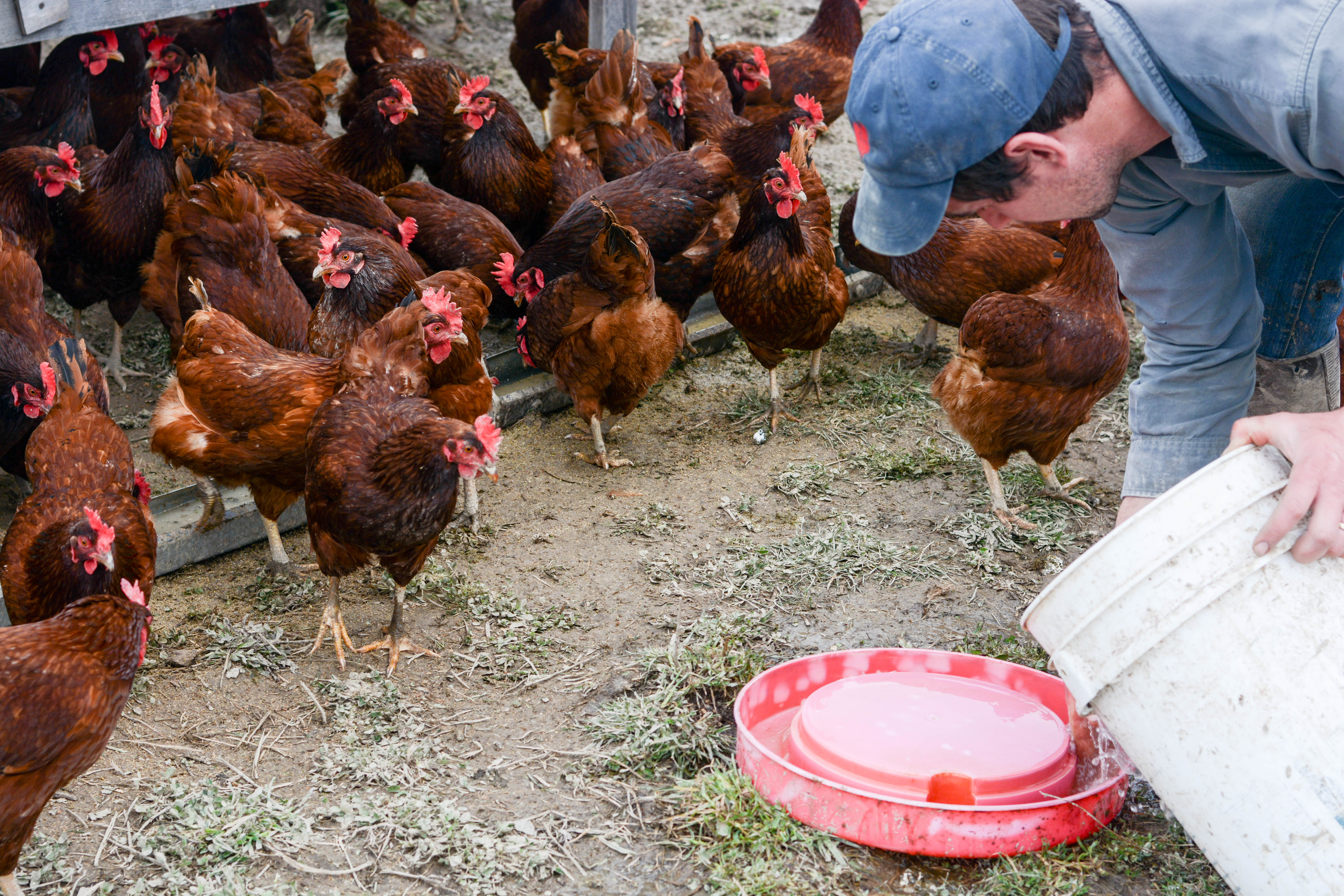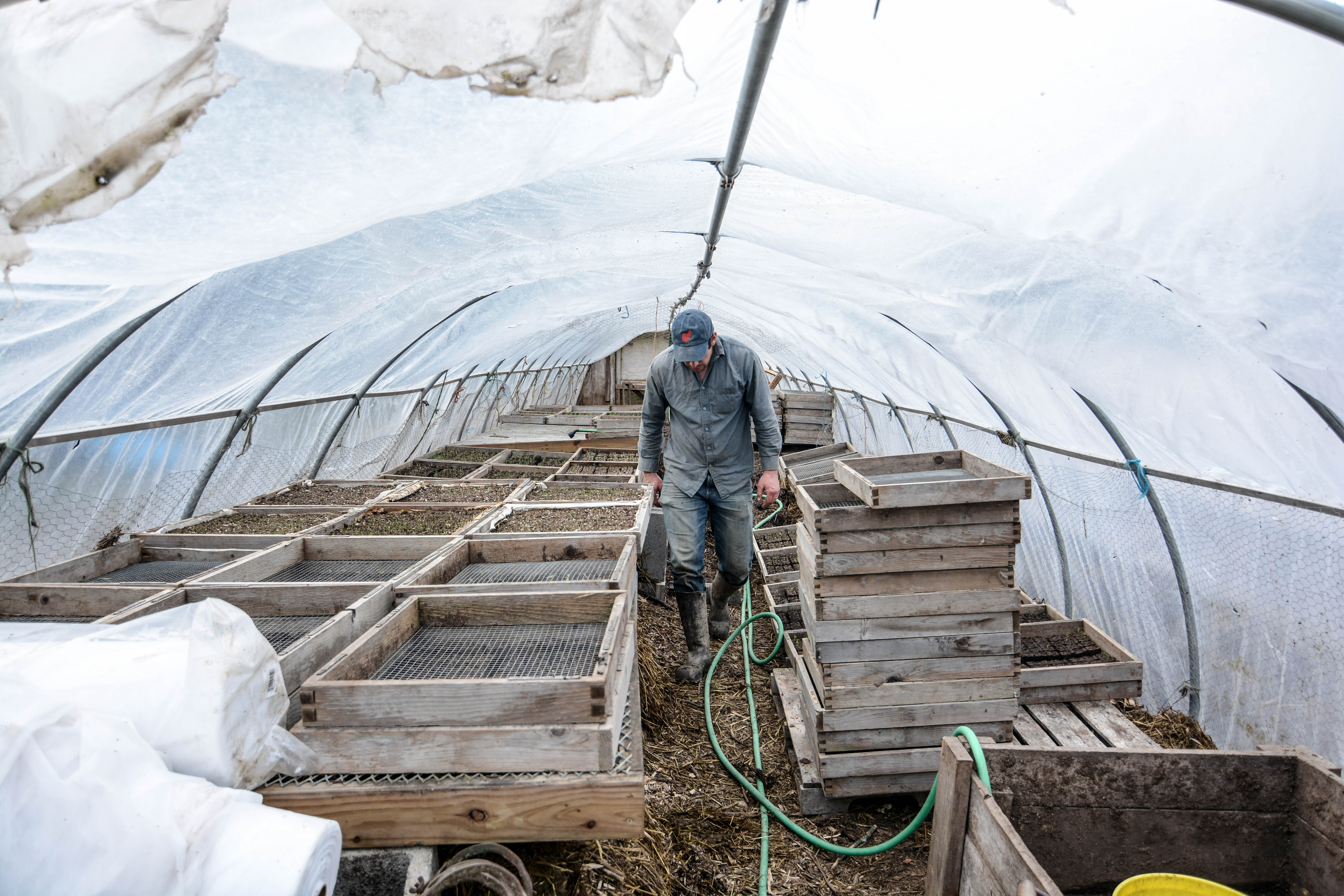
Twice a day, every day, Mark Trapp does his chores. Dressed in a ragged green and brown flannel shirt, tattered knit hat, mud-stained pants and old galoshes, Trapp treks across his 30-acre plot of land for four hours of chores at 7:00 a.m. and 4:30 p.m.
Feed animals, clean coops, check crops. Repeat.
In the heart of Cuyahoga Valley National Park, Trapp’s homage to a farming culture of centuries ago stands alone.
Two horses. Two cows. Five hogs. Dozens of chickens. No technology.
His methods aren’t easy, but his intention is simple: Cultivate the land to save it.


In 2010, Trapp shifted his trajectory from successful engineer to self-sustainable farmer, moving from North Carolina to Northeast Ohio to chase his dream. Without previous farmhand training, Trapp taught himself the sustainable practices he uses today. Driven by a desire to aid in a positive change in the farming industry, Trapp Family Farm flourished. Over the past seven years the farm has evolved from selling fresh eggs from the side porch of the family’s home to a monthly membership program providing fresh crops to families in the area.
“Some people spend their whole lives just coasting, never thinking about how they could be helping or hurting others with their work,” Trapp says. “Nothing has ever been so hard, but felt so right, as this lifestyle.”
Story and photos by Felicia Guadagni
20 Comments Add yours